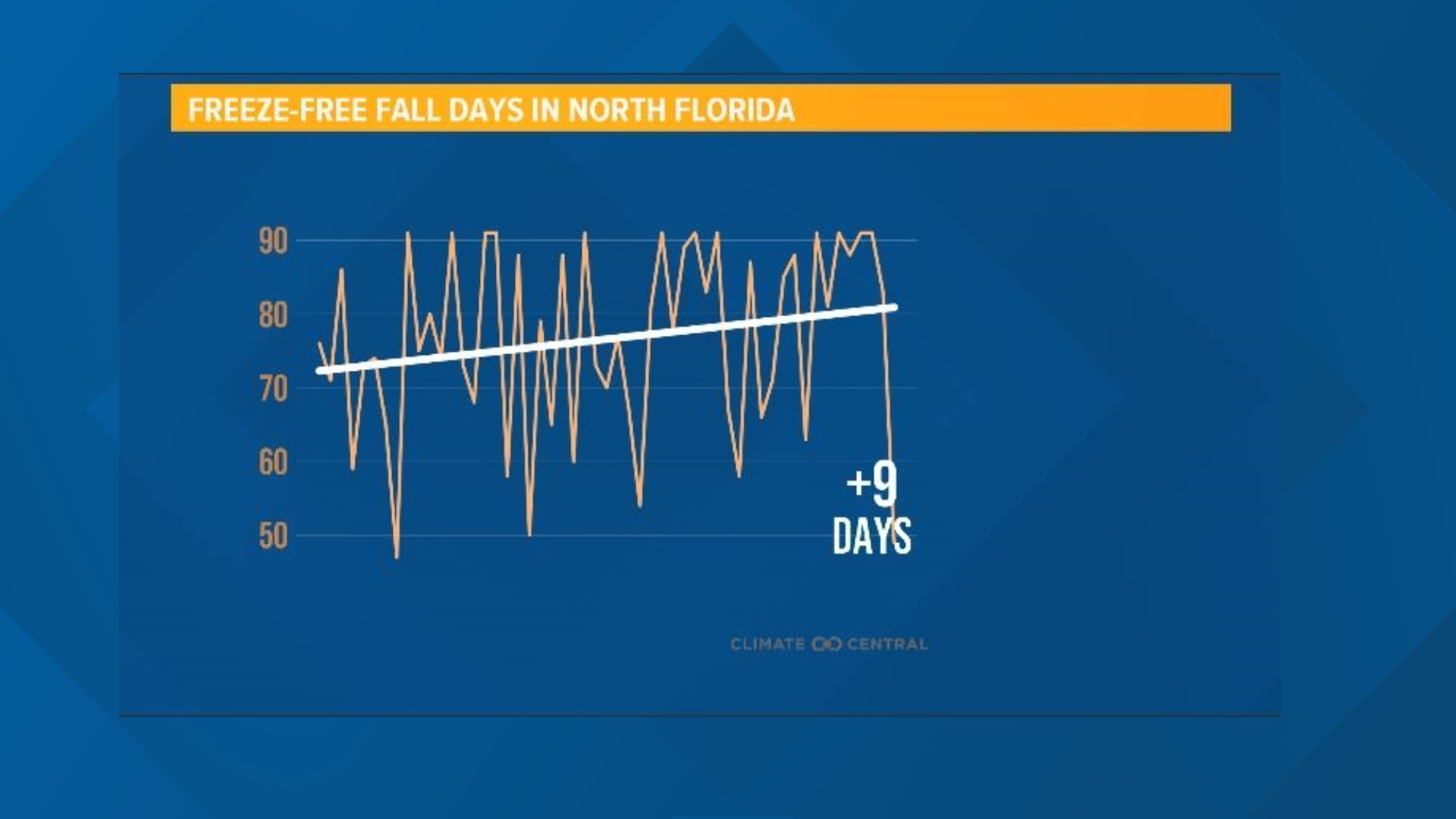JACKSONVILLE, Fla. — People across the country are experiencing more severe seasonal allergies as a result of climate change. With Florida's mild winters, the allergy season lasts all year, but the cool down that fall brings, helps stop the intensity of pollen spread.
Pollen studies by Climate Central, a nonprofit organization, shows that North Florida and many other states, have an average of nine more 'freeze-free days' per year, making fall shorter and pollen-like ragweed grow longer. Carbon emissions and rising temperatures make pollen-like ragweed grow longer, faster, and seedlings spread quicker.
Two months ago, September 2023 was one of the hottest months on record for the planet, according to the National Oceanic and Atmospheric Administration, and the seventh warmest in U.S. history. The record-heating month can also be linked to the El-Nino Southern Oscillation pattern that significantly warms the Eastern Pacific Ocean, creating amplified weather patterns throughout the U.S. This summer's heat wave continued through the fall.
Pollen seasons are longer this year because of an earlier spring warm-up, which causes the last spring frost to occur earlier; in turn, a delayed fall cool down, delays the first fall frost. And for those who suffer from pollen and mold allergies, this means a longer allergy season.
So, even later in the fall, it's important to stay prepared, especially if you have severe allergies or asthma.

